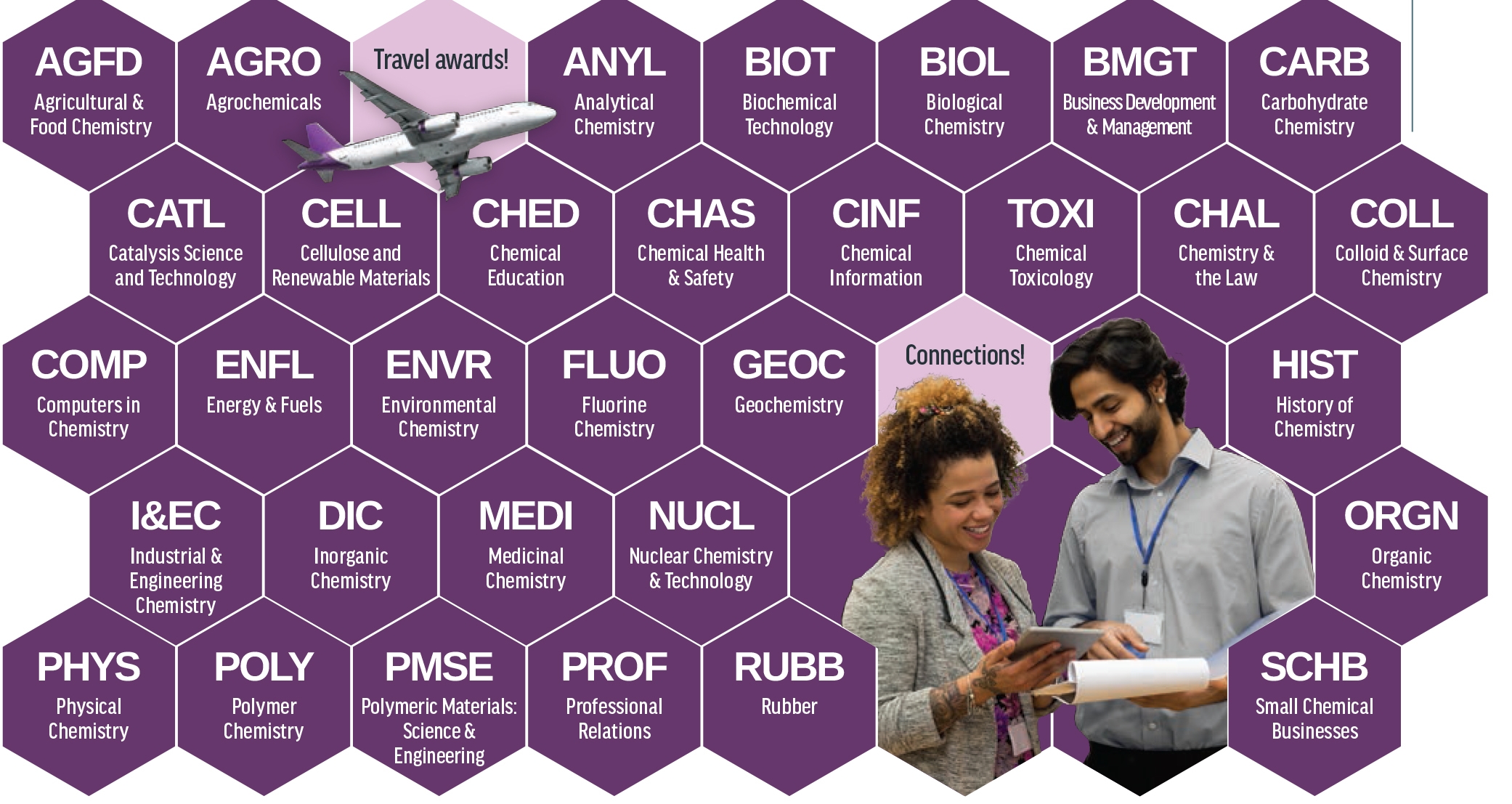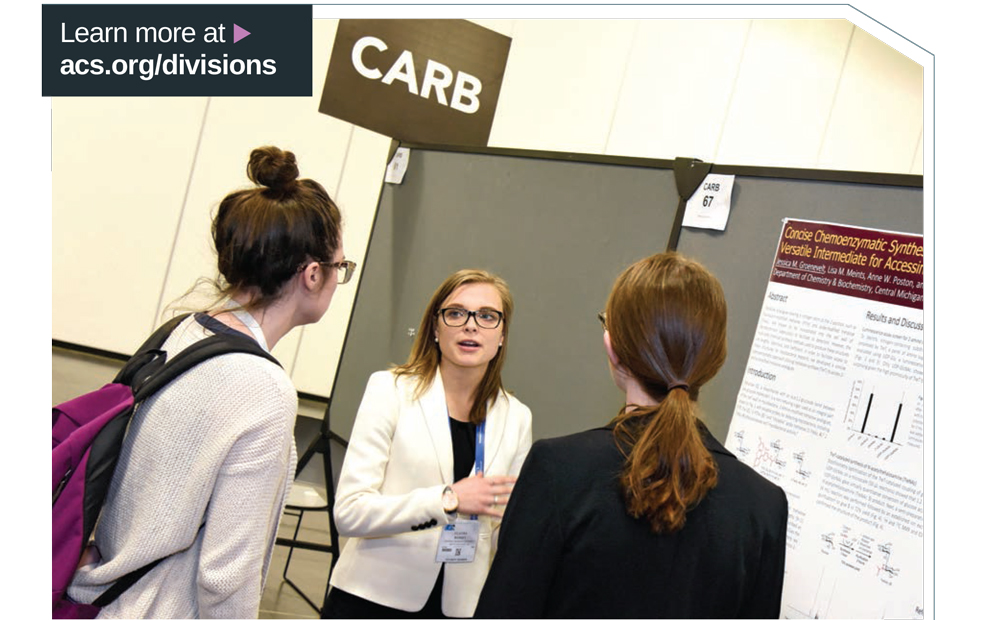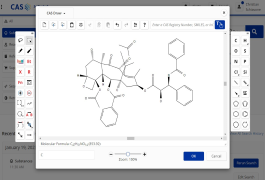Go Further with ACS Technical Divisions

If you are a new ACS member—or considering joining—you have the special privilege of being part of a global community of chemistry professionals. Soon you’ll be interacting with peers who love chemistry, presenting at professional meetings, and accessing a wealth of resources and opportunities that will propel your career forward.
Becoming a member of the world’s largest scientific society sounds like it should be enough all on its own, right? Well, there are special communities within ACS, which you may have overlooked, that allow you to explore your interests in depth: ACS’s 32 technical divisions. And this year, a new offering gives first-time members a chance to see what divisions are all about. You can join up to three technical divisions for free for a year!
What are ACS technical divisions?
Technical divisions are field-specific communities within the ACS umbrella that provide members with a forum for networking, collaboration, and professional development.
One of the first ways you might encounter a technical division is when you submit an abstract for an ACS national meeting. Technical divisions plan and organize the technical programs at these meetings, so you submit your abstract to a specific division. You’ll often see them referenced by their four-letter abbreviations. For example, ORGN is the Division of Organic Chemistry, CHED is the Division of Chemical Education, and BIOL is the Division of Biological Chemistry.
Divisions are led and managed primarily by volunteers. They also have a few members who are elected to represent them in ACS governance. Also, as noted, they manage technical programming at ACS national and regional meetings. Divisions vary in size—from a few hundred members to 10,000. The resources they provide are equally varied. In addition to organizing technical programming at national and regional meetings, divisions often maintain websites and social media, organize networking events, publish newsletters, administer grants, and more.
Students can join up to three technical divisions, FREE! Learn more
Why join a technical division?
Here are some of the many big advantages to being involved with technical divisions:
Be in the know about awards for travel and research
Many divisions have travel awards for undergraduate students that help pay for travel to an ACS national meeting. For example, the Division of Agrochemicals (AGRO) offers selected undergraduate and graduate students up to $600 to help defray the costs of attendance to give poster and oral presentations. AGRO also has a poster competition where first-, second-, and third-place winners receive an additional cash award. The Division of Fluorine Chemistry (FLUO) offers the Moissan Summer Undergraduate Research Fellowship in Fluorine Chemistry. Opportunities abound, and a good way to stay in the know is to join a division.
Connect with like minds
To the outside world, a chemist is a chemist. As a new chemist, you have probably started to see the amazingly diverse ways to be a chemist, and to see the richness of chemistry subcultures. The experience of being a synthetic organic chemist is very different from being a computational chemist. If you can’t understand what some of your peers are working on or don’t see yourself doing what they do, you are not alone. Divisions are a way to network regionally, nationally, and internationally with
peers who share your interests.
Explore your interests
With the option of joining up to three different divisions, you don’t have to limit yourself to just one area of interest. If your passion is inorganic chemistry but you also
have a thing for history, you can join both the Division of Inorganic Chemistry (DIC) and the Division of the History of Chemistry (HIST). If you have an entrepreneurial streak, join the Division of Small Chemical Businesses (SCHB). After your first free year, division memberships are discounted for students. This is your chance to explore what
divisions have to offer, not just the division associated with your undergraduate research.
Boost your résumé
Showing involvement in specialized areas of chemistry can help your résumé shine. If you are planning to use your chemistry degree in the field of law, you’ll be able to highlight
your experiences with the Division of Chemistry and the Law (CHAL). At this stage, you’re probably looking to build a résumé that will eventually help you advance
in chemistry. Joining a technical division may give you access to experiences that will set you apart from the competition. You’ll have access to awards, leadership, and volunteer opportunities, and connections within specific fields of chemistry. You will learn more about the different areas of chemistry and, hopefully, find your niche in the career that’s right for you.






